Friends, colleagues, please join us for this fourth instalment in the Deakin Anthropology Seminar Series 2017, presented by Frederic Keck (EHESS, Musée du Quai Branly). The seminar will be followed by drinks at The Edge, 6/8 Eastern Beach Rd, Geelong.
Date: Thursday 1st June
Time: 4:00-5:30pm
Location: Deakin Waterfront AD1.122
(Also: Burwood C2.05; Melbourne Corporate Center, enquire at desk; VMP 39384)
Biosecurity in museums of virology, ornithology and anthropology

If biosecurity can be defined as a recent paradoxical injunction to circulate living material for the production of knowledge while securing its uses because of the instability of this material, it can help us revisit the history of museums as places where material is stored and conserved for the public display of knowledge. This talk will compare the history of virology since the discovery of the flu virus in the 1930’s, the history of ornithology since the voyages of Captain Cook and the history of anthropology since the foundation of the Museum of Man in Paris. It proposes a genealogy of the current analogies between the management of bird flu at Hong Kong University and the management of non-European artefacts at the musée du quai Branly in Paris.
Biography:
Frédéric Keck is a researcher at the Laboratory of Social Anthropology and Director of the Research Department of the Quai Branly Museum in Paris. After studying philosophy at the Ecole Normale Supérieure in Paris and Anthropology at the University of California at Berkeley, he has investigated the history of anthropology and contemporary biopolitical questions. He published Claude Lévi-Strauss, Une Introduction (Pocket-La découverte, 2005), Lucien Lévy-Bruhl, Entre Philosophie et Anthropologie (CNRS Editions, 2008) and Un Monde Grippé (Flammarion, 2010). He has co-edited (with N . Vialles) Des Hommes Malades des Animaux (L’ Herne, 2012) and (with A. Lakoff) Sentinel Devices (Limn, 2013).

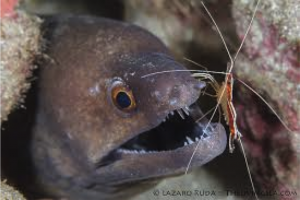
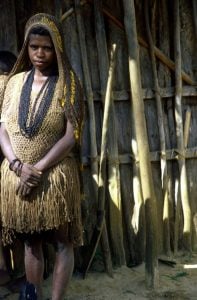


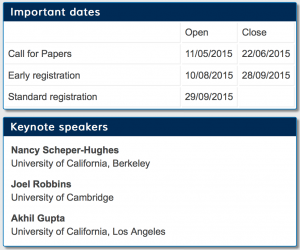 (AAS) will be hosted by the Anthropology Programme at the University of Melbourne from 1-4 December. This year’s conference “Moral Horizons” will address moral pluralities both within anthropological practice and in the rapidly evolving world the discipline researches.
(AAS) will be hosted by the Anthropology Programme at the University of Melbourne from 1-4 December. This year’s conference “Moral Horizons” will address moral pluralities both within anthropological practice and in the rapidly evolving world the discipline researches.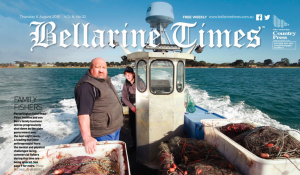
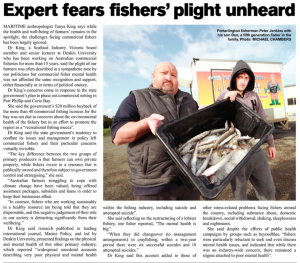 cribed in a sympathetic tone by our politicians but commercial fisher mental health was not afforded the same recognition and support, either financially or in terms of political oratory.
cribed in a sympathetic tone by our politicians but commercial fisher mental health was not afforded the same recognition and support, either financially or in terms of political oratory.